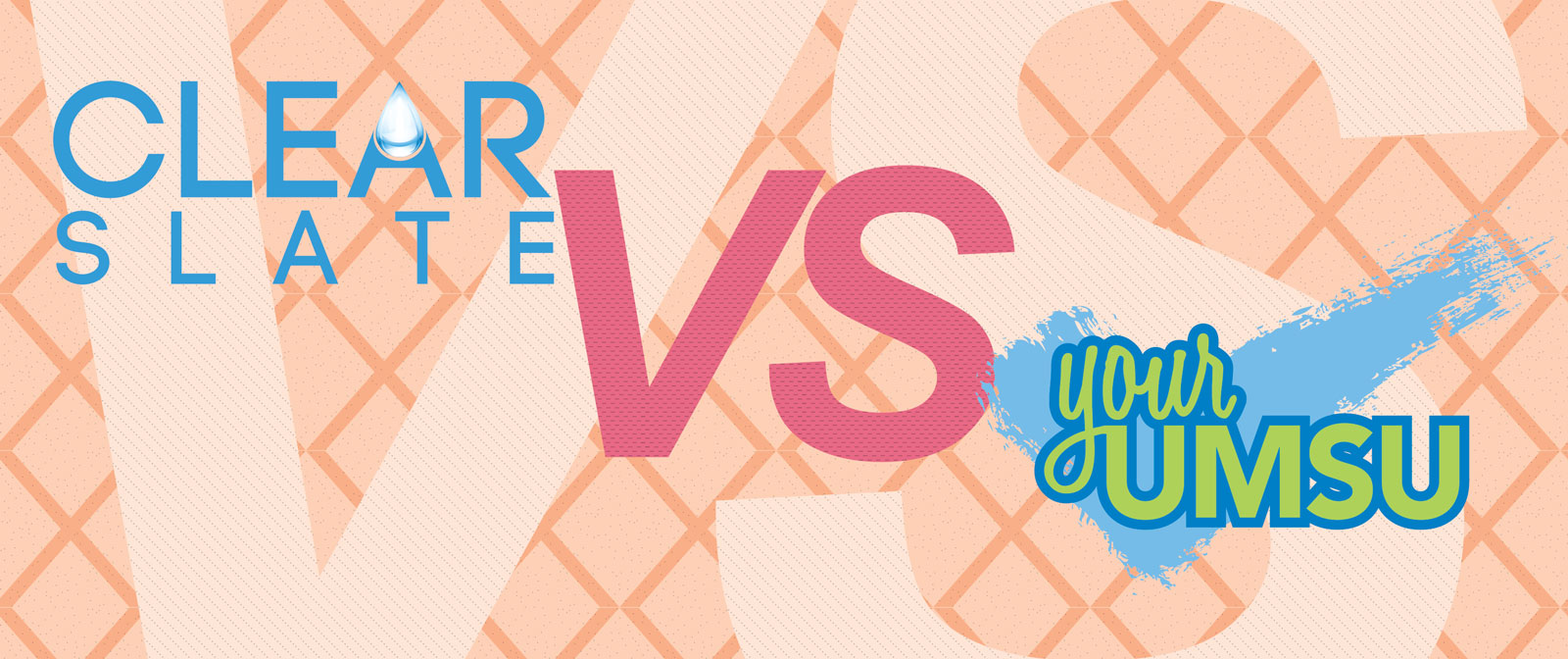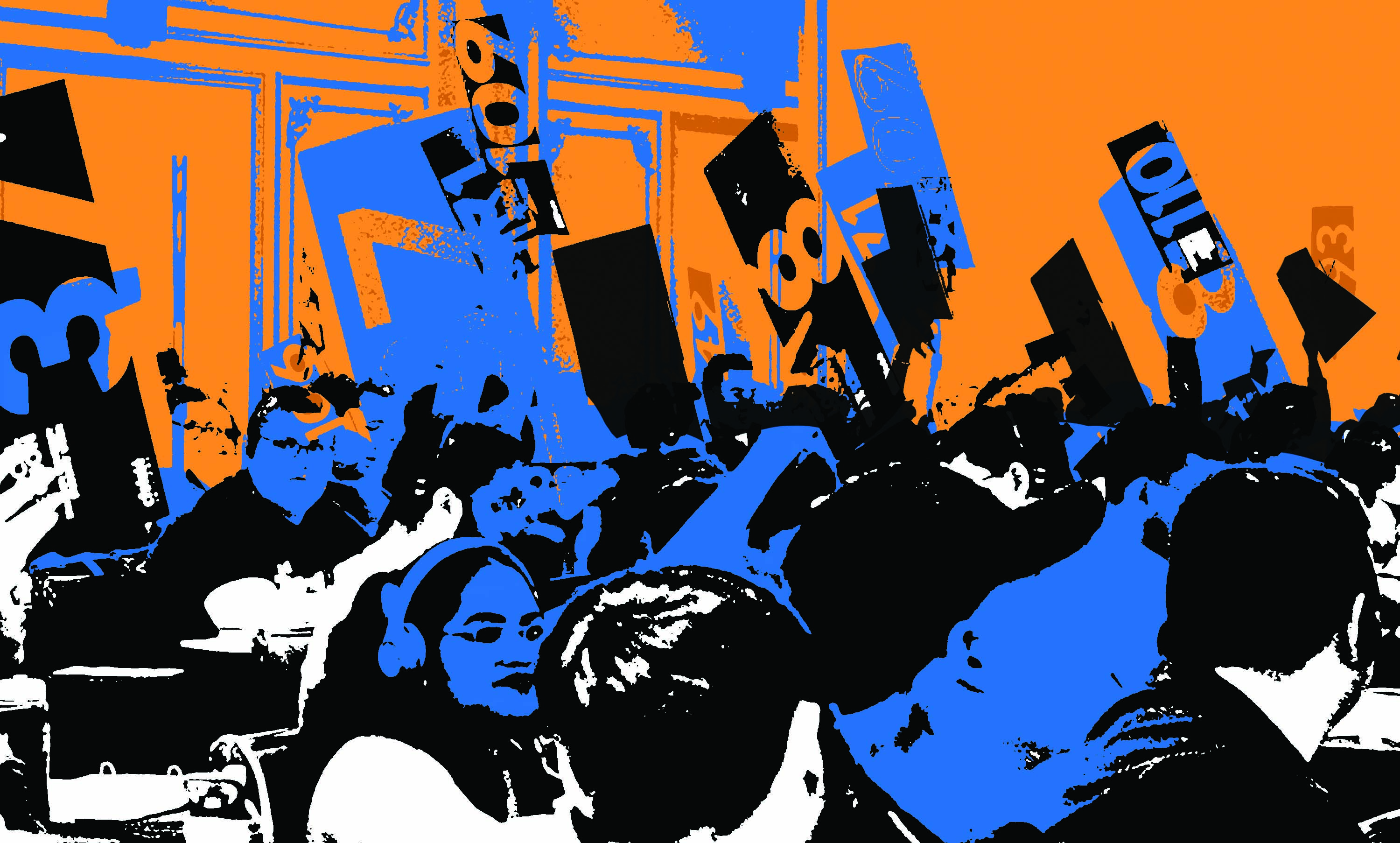UMSU president Jakob Sanderson is questioning the logic of a city committee that unanimously supported a Winnipeg Transit budget proposal that recommends cutting the U-Pass, saying it isn’t working with sound numbers.
“People are voting on stuff that they don’t even know what they are voting on,” he said. “The public service presented numbers that were factually incorrect.”
The public works committee unanimously supported the proposal following a marathon 11-hour session Thursday.
Despite hearing numerous presentations from post-secondary students and leaders in support of the pass — in addition to nearly 20 additional written submissions — the committee passed the budget without amendment.
It now moves to approval from the executive policy committee, which is scheduled to hear public delegations today.
Sanderson questioned transit’s claim that continuing the service into the 2020-21 academic year would cost the city $15 million over four years, saying the department hasn’t made a full breakdown of the cost available.
He presented an alternative to the committee but admitted that, without a fuller disclosure from transit, “it was very difficult to challenge the city’s numbers on this.”
“If I were a member of council, I would have a lot of difficulty, honestly, voting on the budget of public works, or at all, because they are voting with incomplete and incorrect numbers,” he said.
“And it really calls into question the type of process that we have to craft a budget in this city.”
U of M students voted overwhelmingly in support of continuing the program at a cost increase of nearly $25 per term just last month but were caught off guard when the city unveiled its proposed budget March 6. The service currently runs at $136.25 per four-month term.
The current contract expires in May.
Sanderson said UMSU plans to publish its own costing early this week.
It was not available before publication.
An UMSU board of directors meeting the same day left some students frustrated after it quickly broke into closed session to discuss developments on negotiations with the city. When the session opened up again more than an hour later, no public update was provided.
Sanderson — who remained at city hall and was absent from the meeting — said the board needed to discuss the strategic direction it would take with the city but that he regretted there was no public discussion.
He said the board wanted “to ensure that we are operating at an optimal level in our discussions going forward with the city [and] we made a difficult decision to have to be in camera.”
As of publication, the executive policy committee remains scheduled to hear public delegations in a special meeting today. The meeting has been moved up a day — it was initially scheduled for March 19 — and Sanderson said he is still organizing to have as many students present as possible.
As precautionary measures in response to the COVID-19 pandemic have seen the U of M move all of its courses out of the classroom and numerous public events have been cancelled or postponed, Sanderson said UMSU has been looking into the possibility of having delegates present through a video link or other alternative measure.
But he said he still intends to be present and it remains crucial for students to be heard.
“We are exploring options to try and do this in a safe way but, at the end of the day, the city does need to hear from us,” he said. “I will be there personally, for sure.”
“Negotiating in bad faith”
Among the number of presentations to the committee from post-secondary students — which included incoming and outgoing UMSU executives, student leaders from the University of Winnipeg and students-at-large — U of M Graduate Students’ Association (UMGSA) vice-president academic Tanjit Nagra accused the city of dishonest negotiations.
Nagra — who negotiated the inaugural U-Pass contract as UMSU president — noted that while the city informed graduate students that a summer extension to the U-Pass would no longer be an option for the UMGSA’s own referendum to approve the fee increase, “We were not told at this time that we shouldn’t even bother asking the question.”
“We weren’t even given an email or a phone call prior to the [executive policy committee] meeting last week on [March 6] to let us know that the U-Pass was being proposed to discontinue,” she said in the committee presentation.
“This […] is why I believe us, the students, were misled and why I believe the City of Winnipeg was negotiating with us in bad faith, plain and simple.”
For the time being, the UMGSA referendum remains scheduled for early April, after city council is scheduled to take its final vote on the budget March 26.
North Kildonan Coun. Jeff Browaty voted in support of the budget but agreed students were not treated fairly by the city, telling media last week that “I would feel somewhat betrayed by the way this all played out.”
“I think that was unacceptable and very disgusting on behalf of some of my colleagues on council,” he said.





